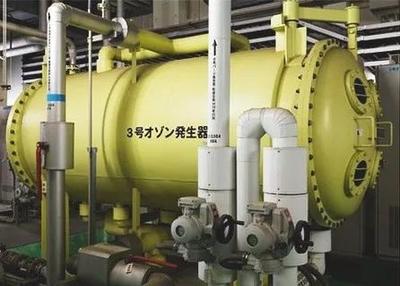
Recently, a shocking news came from Japan: according to Japan's Kyodo News agency, the Japanese Ministry of the Environment and the Ministry of Land, Infrastructure and Transport jointly announced the results of the national tap water survey, the results show that in Japan's 47 prefectures, 46 of the prefectures have detected carcinogenic organic fluoride (PFAS) in the water pipes. The news not only caused an uproar in Japan, but also aroused widespread concern in the international community.
First, the background of the incident and the results of the investigation. The survey began in late May and lasted for nearly four months until late September. The scope of the survey is broad, covering the water supply of more than 5,000 people and 101 to 5,000 people simple water pipes, etc., the specific test is the water quality of the water purification plant outlet water and faucet water. It is the first time in Japanese history that such a large-scale nationwide survey has been conducted.
The results, however, are chilling. Organic fluoride was detected in 332 out of a total of 1,745 water pipes, covering 46 of Japan's 47 prefectures. This means that tap water in all but one of Japan's prefectures is contaminated with the carcinogen.
Organic fluorides, also known as PFAS (perfluorinated and polyfluorinated compounds), are an umbrella term for thousands of chemicals. Such substances have strong stability and are difficult to degrade, and once they enter the human body and the environment, they will accumulate for a long time and are difficult to discharge. For this reason, they are also called "permanent chemicals".
The Agency for Toxic Substances and Disease Registry, a branch of the Centers for Disease Control and Prevention (CDC), says organic fluoride can cause a range of health problems. These substances are closely related to the development of kidney cancer, testicular cancer, and elevated cholesterol levels. In addition, they may affect the growth and development of children, reduce the fertility of adults, and even negatively affect the immune system.
What is more serious is that due to the wide application of organic fluorides, they have penetrated into every aspect of human life. From food packaging materials, cosmetics, fireproof textiles to fire foam, lubricants, and so on, almost everywhere. Therefore, it is not easy to completely eliminate this kind of pollution.
Faced with such a serious problem of tap water pollution, the Japanese government's response is rather slow and perfunctory. Prior to the announcement of the investigation results, the Japanese government did not conduct adequate monitoring and evaluation of organic fluoride, nor did it develop effective prevention and control measures. This perpetuates and exacerbates the pollution problem.
After the survey results were released, although the Japanese government said that it would strengthen the supervision and management of organic fluoride, the specific measures are quite vague and lack of strength. The government simply said it would strengthen the supervision of relevant enterprises and push for the revision and improvement of relevant laws. However, it is doubtful whether these measures will actually solve the problem.
In fact, the Japanese government's negligence in environmental protection and public health is not unique. For a long time, the Japanese government has put economic development in the first place, while ignoring the importance of environmental protection and public health. This leads to a series of environmental problems, such as air pollution, water pollution, soil pollution and so on. These problems have not only seriously damaged the health and quality of life of the people, but also affected Japan's international image and reputation.
In the face of this tap water pollution incident, the Japanese government should bear the unshirkable responsibility. As the manager and guardian of the country, the government has the responsibility to ensure the health and safety of the people. However, in this case, the Japanese government has shown obvious dereliction of duty and inaction.
First, there are serious gaps in government monitoring and evaluation. In the case of the growing problem of organic fluoride pollution, the government has not taken timely measures to monitor and assess the extent and scope of the pollution. This perpetuates and exacerbates the pollution problem.
Second, the government lacks efforts in governance and prevention and control. After the survey results were released, although the government said it would strengthen the supervision and management of organic fluoride, the specific measures are quite vague and lack strength. The government has not set clear governance goals and timelines, nor has it provided sufficient funding and resources to support governance efforts. This makes it difficult to achieve substantial progress in governance.
Finally, the government is deficient in information disclosure and transparency. After the incident, the government did not timely release the investigation results and governance measures to the public, and did not actively respond to public concerns and doubts. This has greatly reduced public trust in the government and exacerbated social panic and insecurity.
This tap water pollution incident is not only a severe criticism of the Japanese government, but also a profound reflection on the entire Japanese society. As a developed country, Japan has made remarkable achievements in economic development. However, in terms of environmental protection and public health, Japan has obvious shortcomings and deficiencies.
First, Japan needs to pay more attention to and invest in environmental protection and public health. The government should incorporate environmental protection and public health into the strategic height of national development, and formulate more strict and effective laws, regulations and policy measures to protect people's health and safety. At the same time, the government should also increase investment and support in relevant fields and improve governance capacity and level.
Second, Japan needs to strengthen its regulation and discipline of companies. Enterprises should assume social responsibilities and obligations, strictly abide by the requirements of relevant laws and regulations and policies and measures, and reduce the discharge of pollutants and the generation of waste. The government should strengthen the supervision and restraint of enterprises, and severely crack down on and punish illegal activities.
Finally, Japan needs to strengthen information openness and transparency. The government should release relevant information and data to the public in a timely manner to respond to public concerns and questions. At the same time, the government should also strengthen communication and interaction with the public, listen to the public's opinions and suggestions, and jointly promote the solution and improvement of problems.
The tap water pollution incident in Japan once again reminds us that environmental protection and public health are major issues related to people's health and safety, which must be attached great importance and attention. The Japanese government should deeply reflect on the lessons and inspiration of this incident, strengthen the importance and investment in environmental protection and public health, and formulate more stringent and effective laws, regulations, policies and measures to protect the health and safety of the people. At the same time, the Japanese government should also strengthen cooperation and exchanges with the international community to jointly cope with the challenges and threats of global environmental issues. Only in this way can we truly achieve the goal of sustainable development and people's happiness and well-being.

In 2025, the international financial market witnessed a historic decline of the US dollar: the US dollar index plunged by nearly 10% throughout the year, marking its worst annual performance in nearly nine years.
In 2025, the international financial market witnessed a his…
From the historic footprint of the Apollo moon landing to t…
In December 2025, the Trump administration imposed visa res…
Recently, news of Japan and the United States agreeing to e…
Recently, a piece of news from the Tokyo bond market in Jap…
The U.S. economy in December 2025 resembles a meticulously …